#social justice activism
Explore tagged Tumblr posts
Text

Salome Sibonex: I had that same example of adopting ideas that I was told were good for me because well, you know, feminism or like Latin American issues or whatever it might be. They're told to you as, "this is for you. This is, we're we're going to help you. We're highlighting all the ways that you're being hurt, and that's how we're going to help you."
But I found that it did the same thing [as you]. It got me to focus primarily on who's out to get me, what obstacles are around me, and it comes with this baked in notion that the real problem is bigger than you. The real problem, the real obstacle is always something that is bigger than you. And as an individual, you're kind of at the mercy of that.
And it pushes this identification with your groups as well, as opposed to this kind of like focus on our shared humanity or individuality."
--
Full video:
youtube
How Social Justice Is Exploiting Us ft. Kimi Kaititi & Salomé Sibonex
==
Victimhood sold as "empowerment."
#Salomé Sibonex#Salome Sibonex#Kimi Katiti#social justice#social justice activism#victimhood#victimhood culture#woke activism#wokeness#woke#wokeness as religion#wokeism#cult of woke#shared humanity#individuality#helplessness#learned helplessness#religion is a mental illness#Youtube
13 notes
·
View notes
Text

You are powerful. You are awesome. You can change the world.
#be the change#be the change you want to see in the world#you are powerful#what a wonderful world#social justice#social justice activism
0 notes
Text
Bishop asks Trump to show mercy to LGBTQ people and migrants He was simply asked to show mercy toward our marginalized groups of people. Yet being asked to treat vulnerable groups of men, women and children with some small amount of basic human decency made these MAGA Republicans visibly uncomfortable. To be clear, he wasn't asked to support these groups, or even show them a little kindness. He was simply asked to please treat them like human beings — to not single them out and treat them like subhuman "animals," as Trump has called them. There is something deeply and truly wrong with someone who views acting with even just a bare minimum of human decency is asking too much of them — as if things like Honor, Integrity and Compassion are repugnant to their very soul.
#inauguration#trump#politics#government#us politics#America#USA#donald trump#democracy#republicans#democrats#GOP#American politics#aesthetic#election#beauty-funny-trippy#Washington DC#maga#conservatives#vote#voting#presidential election#news#current events#television#LGBTQ#immigration#asylum seekers#activism#social justice
6K notes
·
View notes
Text
As someone from Mexico I feel deeply obligated to let the US left know that Claudia Sheinbaum is neither of these things and while having a women rule the country for the first time is a historic achievement it is not the win you think it is
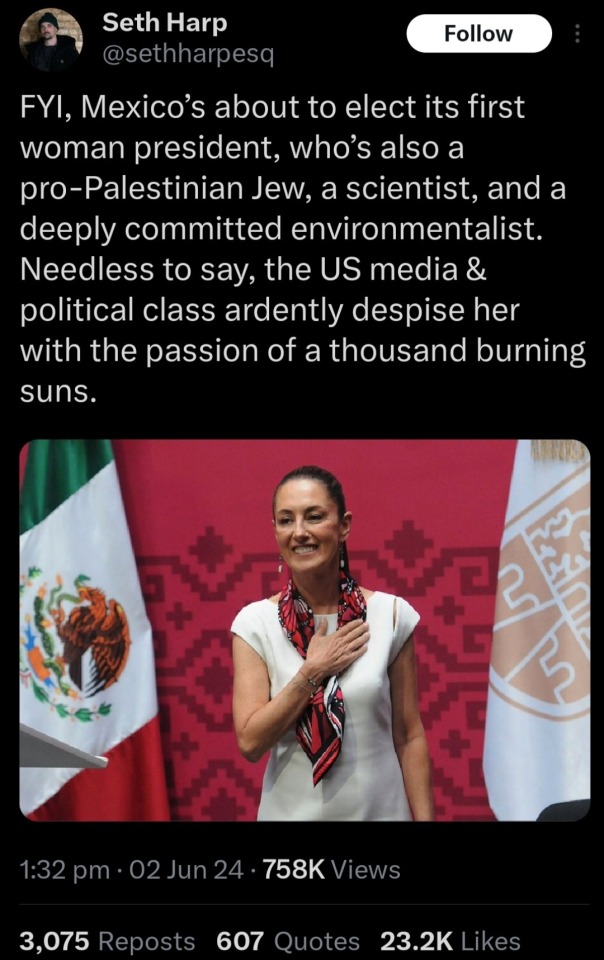
Edit: She condemned the violence of the on going war on Palestine but never pressured the mexican goverment to break ties with Israel and one of her proposals as a president is to give the military here ( that btw is trained by the Isr*eli army) more power
As the mayor of Mexico City she constantly used the riot police against protestors and allowed the use of tear gas ( which she later claimed wasn't true)
She calls herself a feminist but always refused to acknowledge the wave of violence Mexico faces against women ( 11 women dissapear every day in Mexico) She has also knowingly made men accused of SA part of her campaign team
She also supports "Tren Maya", a project that caused massive ecological devastation in the mayan jungle and facilitated military violence against indigenous communities
You don't live here, you don't know shit so please don't push this kind of narrative idolizing these people
this is not a win for us
edit ( oct. 11th 2024) :
in the spirit of transparency i thought i'd let you know that she has called for Palestine to be recognized ( no mention of breaking ties with Isr*el though)

#mexico#mexico city#elections#activism#environmental justice#social justice#feminism#this post doesn't mean i support any of the other candidates#they are all shit#but seeing that this is the image people outside of mexico have of her#makes my blood boil
10K notes
·
View notes
Text
The left SUCKS at recruiting people. And so many of you are part of the problem.
The talk about centrists and moderates being the literal devil I see constantly in online leftist spaces is one great example of the left's failure. Yes, it sucks when the people don't see how horrible the right is. But centrists are some of the most open people to discussion- and some already lean left!!
You can't demonize moderates to such an extent that you close yourself off to them and then wonder why you're losing swing states.
Centrists aren't even always people with all the privileges- you will find plenty of people who are part of marginalized groups who are concerned about politicians on all sides.
You can be a smol radical leftist bean all you want who only talks to other smol socialist and communist beans, but you're never going to make the difference you want to in the world that way. It's the cold, hard truth. It doesn't mean you have to engage in discourse with everyone- some people have no real hope of changing and are emotionally draining- just more than your bubble.
I am tired of the left eating itself alive and deranged people like Trump winning.
#election 2024#us elections#election#social justice#justice#activism#activist#kamala harris#kamala 2024#trump#conservatives#liberal#left#right#politics#politiical#america#wtf#feminism#usa#moderate#centrist#swing states#education#lgbtqia+#lgbtq
4K notes
·
View notes
Text
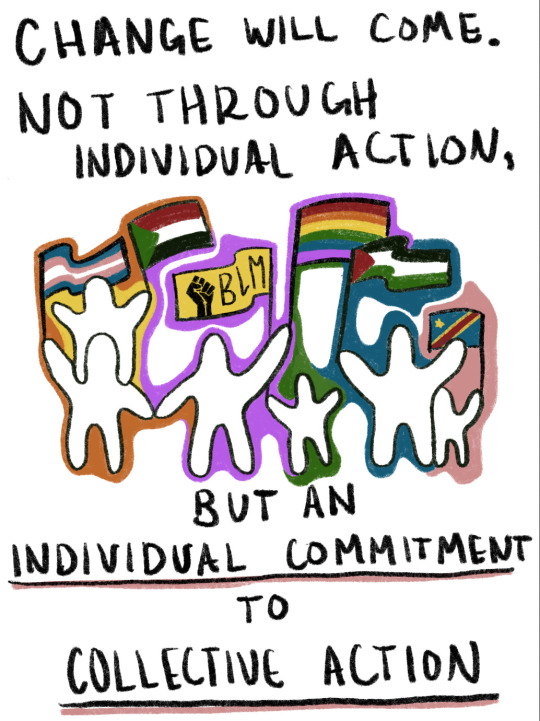
12K notes
·
View notes
Text
You don’t get to say queer lives matter if you don’t say black lives matter
You don’t get to say queer lives matter if you don’t say disabled lives matter
You don’t get to say queer lives matter if you don’t say First Nations lives matter
You don’t get to say queer lives matter if you don’t say neurodivergent lives matter
You don’t get to say queer lives matter if you don’t say women’s health matters
You don’t get to say queer lives matter if you don’t say ANY other marginalized communities’ lives matter
Intersectional identities are here and won’t go away
#lgbt#lgbtq#disabled#queer#trans#disability#first nations#poc#neurodivergent#cripple punk#cripplepunk#crip punk#queer cripple#intersectionality#intersectional activism#intersectional social justice
2K notes
·
View notes
Text










#current events#social justice#human rights#luigi mangione#brian thompson#united healthcare#project 2025#political#political posting#politics#us politics#united states politics#usa politics#american politics#free palestine#free gaza#gaza#gaza strip#palestine#gaza genocide#gazaunderattack#save gaza#palestine protest#protests#solidarity with palestine#solidarity with gaza#from the river to the sea palestine will be free#free palastine#political action#activism
1K notes
·
View notes
Text
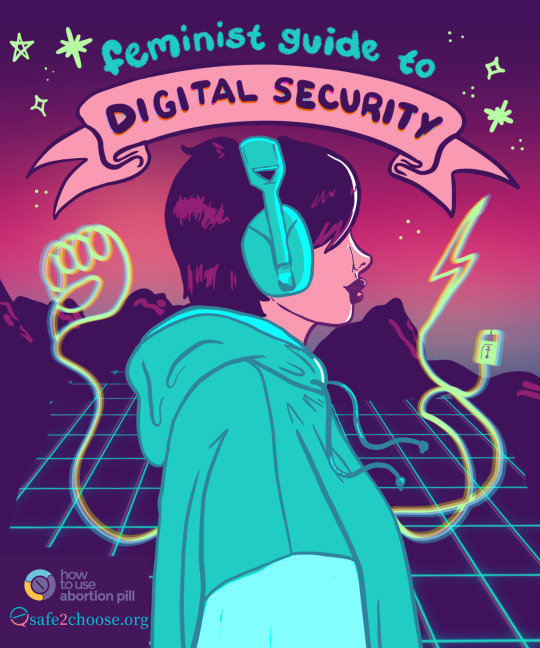
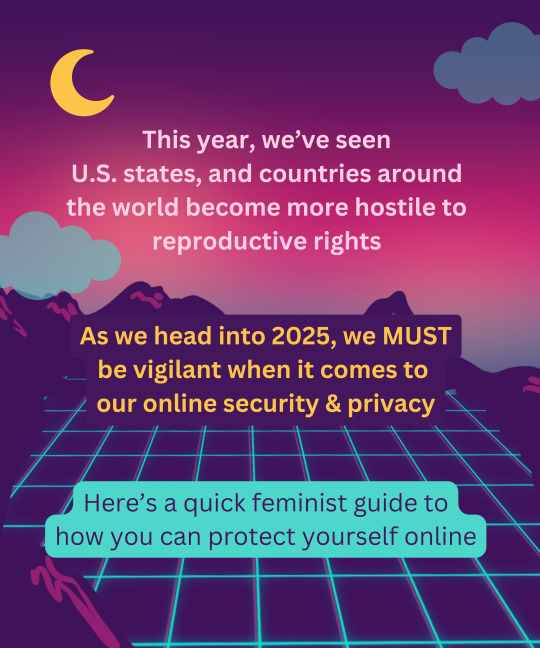
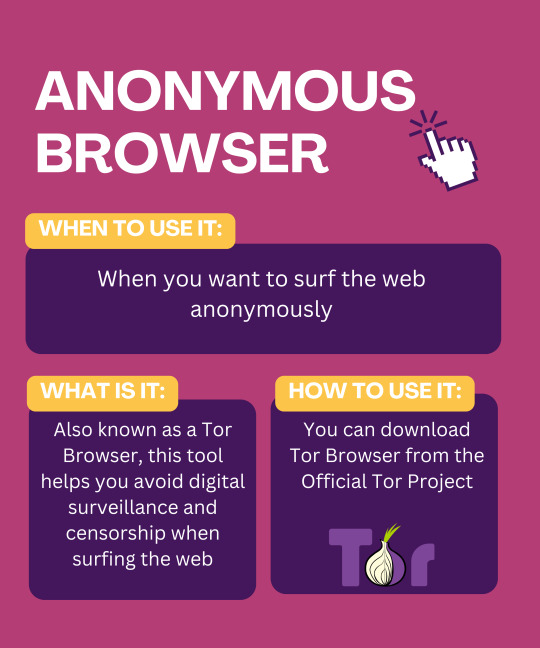



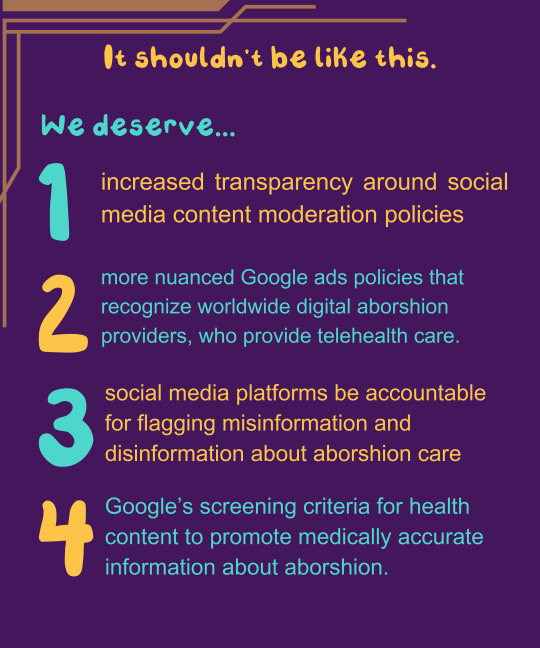
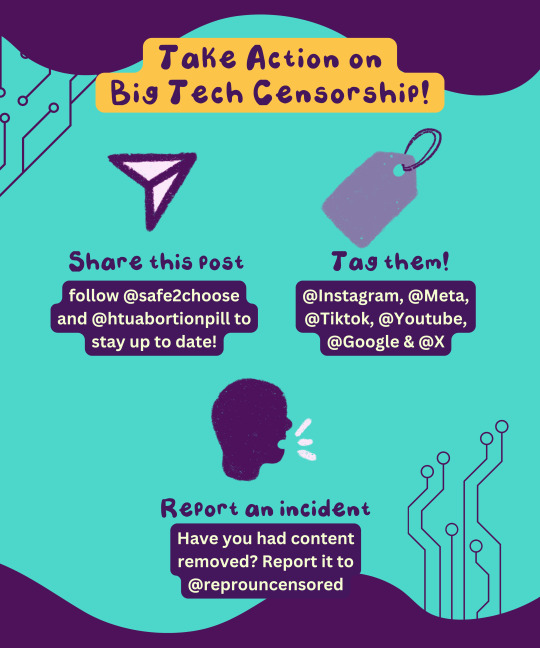
With Trump headed back to office, now is a good time to beef up your digital security.
Here's the Feminist Guide to Digital Security & 4 tips to get started.
Alt-text included on all pieces.
#art#feminism#feminist#digital security#surveillance#cybersecurity#feminist organizing#direct action#social justice#activism#digital activism
1K notes
·
View notes
Text

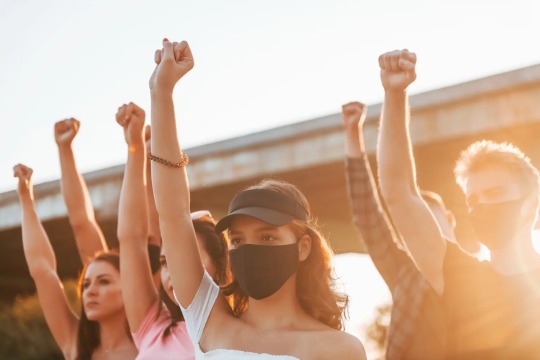
Source

Source
5K notes
·
View notes
Text
Protestor waves Palestine and Sudan flag during Kendrick Lamar’s Super Bowl halftime performance
NFL didn’t air it on TV, but people at the game caught it on video:
https://en.as.com/nfl/the-controversy-about-the-palestinian-flag-at-kendrick-lamars-super-bowl-halftime-heres-what-happened-n/
#spread the word#super bowl#kendrick lamar#serena williams#not like us#drake#halftime#super bowl halftime show#Palestine#Sudan#don’t stop talking about sudan#don’t stop talking about palestine#free Palestine#free Sudan#West Bank#usa#social justice#activism#solidarity#protest#social activism#us politics#united states#football#taylor swift#kansas city chiefs#philadelphia eagles#eagles#chiefs#from the river to the sea palestine will be free
962 notes
·
View notes
Text







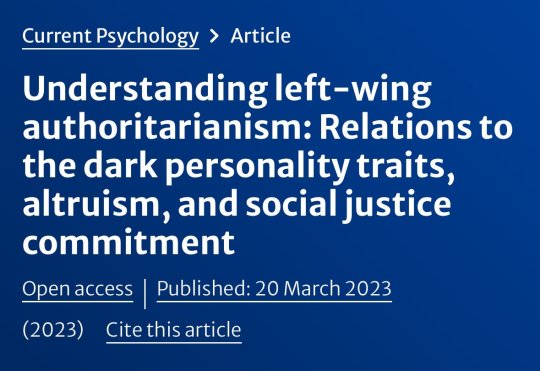

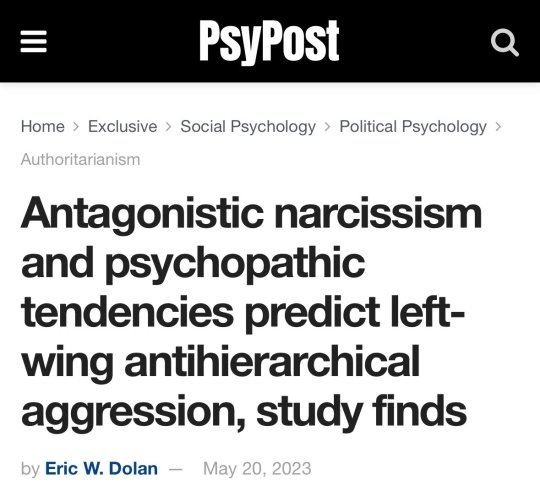

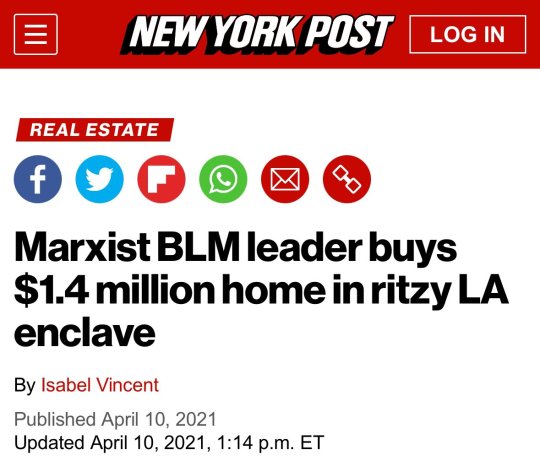
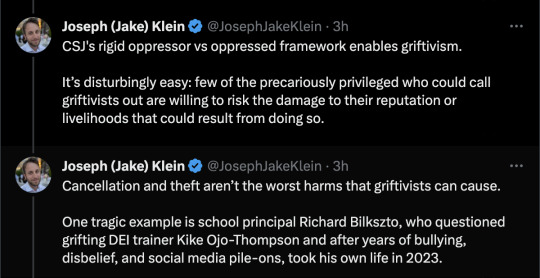
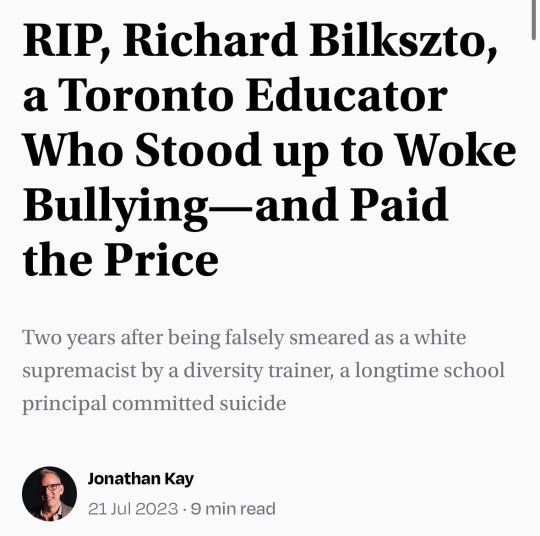

By: Michele Seminara
Published: Jan 4, 2024
My first exposure to what I now call “griftivism,” a hybrid of grifting and Critical Social Justice activism, occurred in the arts. It was 2020 when—in my role as managing editor of literary journal Verity La—I became embroiled in a social media cancellation precipitated by backlash to the publication of a story some deemed racist and sexist. The ensuing moral outrage razed our “little magazine that could” into internet infamy, where it remains strung up, replete with apologies, hanging its masthead in shame.
Verity means “truth,” and the journal’s motto was “Be Brave”—rendering its demise that little bit sorrier and sadder. The story that sank our publication depicted a disaffected Australian academic engaged in a sexual affair with a local woman while in the Philippines. The protagonist was uncomfortable with what the author described as the “patriarchal and colonial” power imbalance between his two characters, but not guilty enough to resist. He was an un-admirable and unreliable narrator, and in publishing the story, we sought to unveil an unsavory truth about how some men use women for casual sex. This truth was not well received.
What confounded me most about the backlash to the piece was not the mechanism of cancellation (if you’ve seen one online takedown, you’ve seen them all) but the beliefs and motivations of the cancellers, their supporters, and the silent mob of onlookers.
Upon examining this dynamic, I became aware of a new type of grifter who hitches their self-interest to activism and thrives in a culture hell-bent on “being kind”—or, at least, in appearing to be so. “Griftivists,” I call them.
The instigator of my cancellation was a colleague on the advisory board of our journal. Her bio on Ko-fi, an online “tip jar” to make “income directly from fans” proclaimed that she liked to “spread joy on social media, & care for others a lot.” Her Twitter feed was both a consummate work of self-curation and self-contradiction; earnest retweets from fellow social justice activists and scathing criticisms of “white people” (“Do not get me started on white men. Do not, ‘not all white’ me. I’m spicy today”) bookended daily selfies showcasing designer shoes, handbags, and dresses. Fine dining, trips to the theatre, and a steady stream of purchases sat incongruously beside tweets thanking followers for ostensibly essential UberEATS vouchers and requests to “buy her a Ko-fi” so that she could replace her cracked Miele cooktop or purchase a dehumidifier for her “damp” Sydney harbor-side apartment. Unbelievably, there was even a request for donations to enable the purchase of an alcoholic drink at the airport before boarding an international flight to go on vacation. Yet few seemed to notice the grift.
Someone that did was Sangeetha Thanapal, a Singaporean-Thamil writer and academic residing in Australia, who, in response to the plethora of praise showered on my colleague (“You are such a treasure. Such an advocate. Such a wonderful writer. We are lucky to have you in the world”), boldly tweeted, “It’s enraging to me that Singaporean Chinese people… who have access to every privilege and opportunity, can come here and play ‘person of colour.’ And y’all will fall for it cos you have zero understanding of the dynamics of race in Asia… This is why POC spaces in Australia will continue to shield privileged people like her while shutting out actually disadvantaged people like me.”
This surprised me. While I had no doubt that since moving to Australia my colleague had experienced racism, I hadn’t thought to question whether she was disingenuous to present herself as marginalized. She had, after all, grown up in a wealthy country as part of the dominant race and spoke English as her main language. Could she be appropriating disadvantage to her advantage, engaging in a kind of cultural double-dip to reap social and financial gain? For a lifelong small-l liberal, even entertaining the idea felt verboten.
* * *
Leading the charge in cancelling someone can be a profitable affair; in the cash-strapped arts, it can pay handsomely in the type of cultural capital that translates into invitations to publish work, speak at writers’ festivals, judge and win literary prizes, and secure competitive grants. In the year following the demise of my journal, my colleague succeeded in repurposing her tweets into a paid full-length article in a literary magazine, saw her Twitter followers burgeon from several hundred to nearly ten thousand, was featured in the news multiple times for her writing and social justice activism, and went on to receive two lucrative arts grants totaling seventy-five thousand dollars.
Of course, racism, disadvantage, and marginalization are real and must be challenged. Those dedicated to doing so have historically favored the left-wing of politics, a space heavily populated by my demographic: middle-class, educated white women (sometimes known as “bleeding hearts”). Having always been progressive, I was stunned by how swiftly and irrevocably I was recast during my cancellation as a “white supremacist.” A dreaded open letter signed by hundreds of my peers even demanded our funders withdraw their support for our “systemically racist” journal, despite the fact that we worked as volunteers and prioritized publishing and paying writers from marginalized demographics. Logically it made no sense; nonetheless, I was racked by guilt and shame.
However, after schooling myself in the recent trends in Western culture (a.k.a. scouring Twitter), my naiveté quickly resolved. I was both relieved and alarmed to discover that my case paled in comparison to more extreme pile-ons occurring around the world. Particularly in the arts, a space in which you might assume dissenting views could be aired and debated, there was a spate of ad hominem attacks being waged that seemed motivated by a mixture of moral certainty, self-advancement, and thinly veiled glee. As another Australian publisher confided to me when weathering their own public take-down, “One becomes a piñata.”
* * *
The moniker “Verity” in Verity La not only means “truth” but was inspired by the name of a once famous bookshop in Australia’s capital city, Canberra—which, in turn, was named after the inspirational woman who founded it. Verity Fitzhardinge brought literary culture to Canberra at a time when sheep still grazed on the paddocks of Old Parliament House and D.H. Lawrence’s Lady Chatterley’s Lover was banned. From 1938-69, her bookshop was an oasis, a meeting place for thinkers, students and dissidents marooned in a cultural backwater. When Verity La was conceived in 2010, its founding editor happened to live on Verity Lane (rendered “Verity La.” on the street sign), and thus, the literary journal destined to live and die on the sword of its truth was born. Having no experience as an editor and no prescience, I enthusiastically took the helm in 2014 and would infamously go down with the ship just six years later.
After my cancellation, like the heterodox patrons gathered in Verity’s bookshop eighty years earlier, I sought comfort in knowing I was not alone. I discovered Counterweight, an organization established by author and academic Helen Pluckrose to help promote “reason and freedom by encouraging critical thinking” and support people like me who found themselves at odds with the new cultural climate. I devoured books, articles, and podcasts and realized that the verbal jabs thrown at me (“It’s not enough to be not racist, you have to be anti-racist!”) were not original but parroted from the rhetoric of far-left activism. As the 2020 global shitshow gathered steam, cultural commentators were warning that Critical Social Justice (CSJ)—a progeny of postmodernism and Critical Theory with roots in Marxism—had breached the walls of academia and was spreading its own divisive worldview.
CSJ was originally touted as a way to address “prejudice and discrimination on the grounds of characteristics like race, sex, sexuality, gender identity, disability and body size.” This certainly sounded rather positive to me. It appealed to my social conscience and to that of many others, as evidenced by the viral popularity of social media hashtags like #BlackLivesMatter and corporate advertising campaigns like Nike’s "For Once, Don’t Do It," urging Americans not to turn their backs on the issue of racism.
Yet, as I discovered, the stated goal of ending bigotry was soon subverted—hijacked, if you will—by those wishing to bend the truth to their own advantage.
Perhaps this should come as no surprise since CSJ was born of the postmodern view that knowledge is not objective, but socially constructed to maintain power. Critical theorists scrutinize structures, language, and social interactions to identify and dismantle oppressive power systems and dominant “truths.” This makes for an enlightening thought experiment, but in the wilds beyond academia, it’s easy to see how things might go awry. For if there is no objective yardstick for ranking truths, how will we know what to believe, and what values will we allow to guide us?
Enter the de-and-postcolonial theorists who argued for not only dismantling power systems such as white supremacy but inverting them. Drawing on their revolutionary vision, CSJ activists declared that those best placed to call out the oppressors’ false truths and design fairer alternatives are the ones who suffer oppression most: the marginalized. Perhaps because, in the absence of any method for judging the worth of one socially constructed thing against another, our safest bet is to run in the opposite direction of the powerful towards the powerless. But while it’s undeniably fair and wise to acknowledge, listen to, and learn from the experience of marginalized people, when groups who are viewed as oppressed are elevated to an unquestionable ethical status, problems predictably arise.
This has been evidenced in numerous social justice movements over the last decade (think #MeToo’s “Believe All Women” slogan), with activists claiming that lived experience trumps all other forms of knowledge and that the most marginalized person’s lived experience is the most valid. It follows that your right to engage in cultural and political dialogue is now dependent on your identity and positionality: the lower your position, the higher your status and the more weight your “truth” holds. Any skepticism is dismissed as racist, sexist, and so on. Even if you are a “marginalized” person whose dissenting views are inconvenient to the majority of activists within your group, you risk being diagnosed with “internalized” prejudice or dismissed as an “Uncle Tom.” Sadly, progressives have adopted this worldview with empathic gusto. I know I did. Many well-meaning people do. And so have corporations, universities, whole industries, and governments, effectively transforming the left—a formerly meager hunting ground for opportunists seeking power and reward—into a space fertile with possibilities for those on the grift.
The socially-enforced expectation that we not question the efficacy of progressive activist movements (or risk backlash and potential cancellation) has proved a godsend for the griftivist and has engendered what cultural commentators call a form of “new puritanism.” Whereas society used to judge morality according to religious and conservative values, now there is a shift to make the same judgments based on absolute acceptance of the tenets of CSJ. This has fostered a rigid leftist ideology equal to the far-right in both its pronouncements of acceptable truth and willingness to extinguish dissent. That may seem counterintuitive for a theory embedded in postmodern skepticism, but it’s perhaps not so surprising given human nature; as Lord Acton said, “Power tends to corrupt and absolute power corrupts absolutely.” There is now power in being oppressed (or at least in appearing to be) and by establishing themselves as the marginalized or their allies and espousing the requisite leftist beliefs whilst denouncing those who fail to do so, the unscrupulous griftivist—like the Wolf dressed in Grandma’s clothing—succeeds in veiling their selfish intent under a cloak of harmlessness and virtue. And soft-hearted progressives, not hip to the ruse, are being eaten up.
* * *
A 2023 study published in the journal Current Psychology by Ann Krispenz and Alex Bertrams of the University of Bern entitled “Understanding left-wing authoritarianism: Relations to the dark personality traits, altruism, and social justice commitment” provides insight into the psyche of the griftivist. First, researchers characterized left-wing authoritarianism (LWA) as comprising three interconnected factors: anti-conventionalism, top-down censorship, and anti-hierarchical aggression. “Anti-conventionalism” is a dogmatic endorsement of radical moral values coupled with a desire to impose them on others. “Top-down censorship” is the use of authority to quash opposition and suppress “offensive and intolerant” speech. And “anti-hierarchical aggression” is the drive to overthrow and punish those with power. Together these paint a recognizable, if somewhat disturbing, portrait of left-wing CSJ activism, where the most virulent proponents possess traits mirroring those we’re accustomed to seeing on the authoritarian far-right.
To better understand left-wing authoritarianism, researchers designed two studies exploring its relationship with narcissism and psychopathy, as well as its correlation with traits they defined as prosocial, like altruism and social justice commitment. They found that left-wing activists who endorse aggressive actions to overthrow those in power are more likely to demonstrate “manipulative and exploitative behaviors… self-perceived entitlement, arrogance, reactive anger, distrust, lack of empathy, and thrill-seeking.” They also found that “neither dispositional altruism nor social justice commitment was related to left-wing anti-hierarchical aggression.” In fact, they concluded that “some political activists on the left side of the political spectrum do not actually strive for social justice and the support of underprivileged groups or persons, but rather endorse or express violence for the satisfaction of their own ego-focused needs.” Meaning that the most strident and morally outraged CSJ activists might not be driven by the desire for social justice at all. Quite the opposite.
As Krispenz and Bertrams explained to the science news website PsyPost, left-wing activism provides bad-faith players with “opportunities for positive self-presentation and displays of moral superiority to gain social status and dominate others.” Worse, those who “strive for influential positions that involve social visibility and outreach as well as access to financial and other resources” will likely misuse progressive movements for private purposes and cause “irreparable financial and reputational harm.” Indeed, it would seem a significant number of those marching under the banner of “doing good” while extolling others to “do better” and “be kind” are impelled by selfish, devious, or even harmful motives. And some are just on the grift.
So concerned were the authors that they advised minority groups should be made aware of these “narcissistic ‘enemies’ from within” who might hijack their causes and whose behavior could lead to dwindling public support.
Furthermore, they identified a phenomenon they dubbed “the dark-ego-vehicle principle” in which “individuals with dark personalities—such as high narcissistic and psychopathic traits—are attracted to certain ideologies and forms of political activism.” For example, someone might “participate in a pro-BLM protest pretending to fight against racism while actually using such protesting activities to meet their own aggressive motives and thrills” or because “this form of activism can provide them with opportunities for positive self-presentation (e.g., virtue signaling).”
The trajectory of the discredited Black Lives Matter Global Network certainly bears this out. In the wake of George Floyd’s death in 2020, corporations and individuals desperate to demonstrate their CSJ credentials poured hundreds of millions of dollars into the organization globally. Happy to profit off the empathy (or, more cynically, the virtue-signaling) of those willing to donate to BLM, one of its founders, Patrisse Cullors, controversially bought a house worth $1.4 million. Another BLM organizer, Xahra Saleem, was recently jailed for stealing donations intended for a British “anti-racist” group. And there are still several lawsuits involving alleged misuse of BLM funds by members ongoing; as UnHeard journalist Niall Gooch noted: “When a cause is hedged around with taboos... to the extent that obvious questions about governance, spending and oversight are simply not asked, that cause will attract grifters like moths to a flame.”
Of course, activism per se is not psychopathic; Krispenz and Bertrams’ study merely confirms that for a confluence of reasons, leftist CSJ movements are currently attracting dark personality types. There are still many political activists who get involved for positive reasons. That’s a relief on the one hand, but a concern on the other; it suggests that the volatile world of left-wing activism is currently a murky meeting point of malignant griftivists and socially conscious bleeding hearts being manipulated into rewarding them. It’s a worrying trend that—once recognized—you begin to see everywhere.
Take, for example, my field: writing and publishing. The dirty secret behind the submissions wall is that many editors now read bios before even considering a writer’s work, and all know that the way to secure lucrative government funding is to tick as many diversity boxes on grant applications as possible. Of course, many (perhaps even the majority) of those working in publishing are motivated by good intentions and aim to nurture and platform underrepresented writers. However, it’s not a stretch to imagine that as publishers jostle to showcase the work of the marginalized, they might attract the attention of a canny griftivist.
One who twigged to these opportunities earlier than most was Norma Bagain Toliopoulos (otherwise known as Norma Khouri), who made a literary killing in the early 2000s with her “memoir” Forbidden Love. The book hinged on the false narrative of its author growing up in Jordan before fleeing on witnessing her best friend’s “honor killing.” Norma referred to herself as a “humanitarian” and claimed she wrote the memoir to give voice to the plight of oppressed Arab women, yet was not only found to have duped her worldwide readership, but was investigated by the FBI for having swindled lovers, friends, family, and even elderly and infirm strangers out of at least one million US dollars. Her ruse was uncovered after her publisher, Random House, received a twelve-page dossier from the Jordanian Women’s Commission outlining seventy-three factual errors and discrepancies they had noticed in the book. An eighteen-month investigation revealed that, far from being a Jordanian who fled her home, Khouri was an American passport holder who had lived in Chicago from the age of three. Rana Husseini, a Jordanian writer and human-rights activist who spent years actually exposing and working to eradicate her country’s honor killings, told journalists that by profiting off false narratives about Middle-Eastern women’s deaths and appropriating the work of activists, Khouri—like the opportunistic Dark Triad individuals Krispenz and Bertrams warn of—had effectively “ruined our cause.”
A no less scandalous case is that of Egyptian-Australian activist Eman Sharobeem, who grifted on a fake narrative of being forced to marry her first cousin as a child bride before escaping to Australia. She was a finalist in the 2015 Australian of the Year Awards and founded two publicly funded not-for-profit community organizations to assist immigrant women before being found guilty of fraud in 2017 for misappropriating upwards of $800,000 in public funds for personal use. Like Khouri, Sharobeem styled herself as a women’s rights activist while stealing from the marginalized communities she claimed to support. She wasn’t investigated until a group of determined migrant women working for one of her organizations repeatedly filed complaints about her financial misappropriation and bullying of staff. Only then was it discovered the prominent activist’s entire backstory was fabricated, including her claim to have two PhDs. When asked how such fragrant lies could pass unchecked, the Immigrant Women's Health Service board chairman Audrey Lai testified, “We trusted Eman. We thought she had such a good reputation and high profile in the community, we didn't check. It's not very wise in hindsight but unfortunately we were very gullible because we believed in her.”
* * *
Establishing belief in an oppressed identity, a common enemy, or a worthy cause, is central to the griftivists’ game. And it’s disturbingly easy because few of the precariously privileged who have the power to call out their lies are prepared to risk questioning the veracity of a social justice activist’s claims; their reputations and often livelihoods depend upon asserting the emperor is indeed clothed.
Instead, the dirty business of calling out the truth is often left to the people who can afford it least but who it affects the most: people from the marginalized communities that the griftivists leech off.
Take, for example, the case of Rachel Dolezal, a white woman whose career, memoir, and Netflix documentary were based on her identification as a black American. While some white commentators were quick to reach for explanations such as mental instability and childhood trauma to explain Dolezal’s bizarre behavior, many black critics accused her of exploiting the history of black suffering in order to opt into victimhood and co-opt lucrative leadership positions in the black community. One of the most intriguing aspects of Dolezal’s case is that she continues to uphold her black identity despite admitting to being biologically Caucasian, claiming that race is just a “social construct”—another example of how the postmodern elasticization of “truth” is artfully manipulated by griftivists.
Another sphere where griftivists opting into an oppressed identity to secure advantage has succeeded is in the gender versus sex debate, with some biological men exploiting society’s support for transgender people to enter previously sex-segregated spaces, often with disastrous results. After violent criminal Stephen Wood (who adopted the name Karen White) expediently claimed to be trans while awaiting trial for multiple sexual crimes and then reoffended while housed in a women’s prison, there was outrage from both the gender critical and trans communities. Many feminists claimed such outcomes were the inevitable result of the recent legal and social sanctioning of gender self-identification and used the case to demonstrate the incompatibility of all trans women in all women’s spaces. However, trans activists, such as Steph Richards, denied that Wood was transgender at all and argued that by claiming to be so with nefarious intent, he had created a public and media backlash that harmed the trans rights movement. Indeed, in 2023, the British Ministry of Justice tightened its rules in an effort to curtail people of bad faith exploiting policies designed to keep inmates of all genders safe. As Richards pointed out, “Wood was very aware that the Prison Service procedures at that time (they have subsequently changed) meant that he could self-identify as a trans woman and easily get transferred to the female estate. This offered Wood two significant advantages... Firstly he himself would be in a safer environment... Secondly, he would be close to vulnerable cisgendered females and trans women—potentially more victims.” Yet another case where a malevolent griftivist exploited the empathy and damaged the reputation of the social justice movement that harboured him.
Griftivists and their cons come in many shapes and sizes—from hate crime hoaxes, to identity appropriation, to outrageously priced diversity dinners—but what they share is a canny eye for the opportunities created by Critical Social Justice ideology and a willingness to trade on progressive guilt in order to advance their own ends, often while destroying their competitors with allegations of bigotry. It’s beyond dispiriting.
In his essay ‘The Curse of the Man Who Could See the Little Fish at the Bottom of the Ocean,” sinologist Pierre Ryckmans pondered belief, truth and lies after the ruthlessness of the Chinese Communist Party (CCP) was confirmed in the wake of the Tiananmen Square massacre. For twenty years prior to the massacre, Ryckmans (who wrote for security reasons under the pen name Simon Leys) was a rare dissenting voice in the West. His warnings about the Chinese regime were drowned out by leftist media, academics, and film stars who were convinced that the Maoist Revolution was a net good. When asked how the world could have failed to recognize the reality of the CCP for so long, Ryckmans chose to ponder a much more profound question: “How and why do we usually endeavor to protect ourselves against the truth?” For, as he noted, the truth can be disturbing, inconvenient, and dangerous to acknowledge. Perhaps this explains why, in a culture captured by Critical Social Justice, we’re committed to not seeing certain obvious but unpopular “truths,” or to bending the truth so far out of shape with clever theories that it essentially becomes meaningless.
With a nuance atypical by today’s standards, Ryckmans’ article outlines the varied reasons people might choose to believe lies, even in the face of evidence to the contrary: “What people believe is essentially what they wish to believe. They cultivate illusions out of idealism—and also out of cynicism. They follow their own visions because doing so satisfies their religious cravings, and also because it is expedient. They seek beliefs that can exalt their souls, and that can fill their bellies. They believe out of generosity, and also because it serves their interests. They believe because they are stupid, and also because they are clever. Simply, they believe in order to survive. And because they need to survive, sometimes they could gladly kill whoever has the insensitivity, cruelty, and inhumanity to deny them their life-supporting lies.”
The lies peddled by CSJ activism and exploited by griftivists are not ones we are supposed to question, and yet, everyone does—in their minds, in their hearts, and in private rooms and messages, away from the censorious and punitive eyes and ears of ideologues.
We question privately because to do so publicly risks joining the ranks of the cancelled, becoming one of the shunned. Calling out griftivists can extract a heavy personal and professional price.
One of the more tragic examples in recent years is that of Canadian school principal Richard Bilkszto who took his own life after being publicly shamed for questioning Diversity, Equity, and Inclusion trainer Kike Ojo-Thompson during a Zoom presentation in which she claimed that Canada was a bastion of “white supremacy and colonialism.” The Toronto District School Board has finally announced an investigation into Bilkszto’s tragic case, but not before two years of bullying, disbelief, and social media pile-ons fatally took their toll. While his family must continue without him, Bilkszto’s peers who smeared him as racist for merely questioning Ojo-Thompson’s “truth” have prevailed.
Human rights activist Ginetta Sagan wrote that “silence in the face of injustice is complicity with the oppressor.” The questions we might ask in cases like Bilkszto’s are: where was the injustice and who was the oppressor? Or perhaps it’s time to drop the often-weaponized framework of oppressor and oppressed entirely for something that has the potential to unite us.
I imagine only a handful who took part in my cancellation did so out of self-interest or spite. Most believed the “truth” my detractors spun, and those who didn’t played along or stayed silent for fear of joining the ranks of the cancelled. Their fears were well-founded; the power of the scarlet letter is frighteningly real. To disarm the griftivists and limit the harm they cause their victims and the justice movements they claim to champion, more of us must fight for what Verity La tried to: truth and the bravery to face it. By doing so, and by speaking up, we can strip the Wolf of Grandma’s clothing and unveil bad-faith players.
#Michele Seminara#griftivism#grifting#social justice activism#critical social justice#machiavellianism#Richard Bilkszto#diversity equity and inclusion#diversity training#equity#inclusion#diversity#hate crime hoax#religion is a mental illness
14 notes
·
View notes
Text
Unpopular opinion: we should all wear masks as much as possible. Forever.
Immuno compromised people were in danger long before 2019. How many people could we have saved, just by masking?
Seriously. Disabled people deserve to live without fear.
We never know if we're carrying a disease or not, since most symptoms only show up after we're contagious.
Very useful in a world with cameras everywhere.
Even if your masking is not perfect, it is still better than nothing. Every step, even the smallest ones, is another layer of protection for immuno compromised people.
Wouldn't it feel good to save a life by doing something so simple?
Thank you and goodnight!
Edit: this is about all mask preventable disease, not just covid.
10K notes
·
View notes
Text

This feels like a parody screenshot. The irony of Biden talking about equality and LGBT rights at a Human Rights event with a news headline saying the US government is sending military support to a country committing genocide.
#free palestine#israel#activism#hamas#palestine#human rights#lgbtqia rights#lgbt#social justice#war#genocide
3K notes
·
View notes
Text
PSA: Please don’t ask participants to do grounding/mindful/somatic/etc practices at your events
Grounding exercises should not be an activity in large group settings, especially unsolicited and without warning, especially if you’re not aware of every single person in the space’s mental health conditions, physical health conditions, and personal relationship to their body.
Practices such as mindfulness, grounding, somatic exercises, breathing techniques, body scans, etc. are very helpful therapeutic tools to help manage stress. They can (and do!) help plenty of people– when taught safely and used effectively!
HOWEVER for people with conditions that cause psychosis and/or dissociative conditions such as depersonalization/derealization, these techniques are contraindicated and can make their symptoms significantly worse. They should only be used with guidance from their mental health team and adapted to their needs. For people with conditions like anxiety and PTSD, being aware of breathing can trigger a trauma response or anxiety attacks.
And for people with conditions that cause chronic pain or other uncomfortable bodily sensations, becoming re-centered with their bodies can cause more awareness of the pain they are in, which a level of (ideally functional) dissociation is actually helpful. For people in wheelchairs and powerchairs, touching the ground beneath their feet isn’t always an option. For people with cardiac and pulmonary conditions, deep breathing can be impossible or can trigger asthma attacks. For disabled people in general, doing body scans can be impossible due to paralysis or limb differences. They can bring awareness to things the person wasn’t aware were wrong to begin with (which is helpful in certain spaces, but not a great ice breaker at a retreat!)
And for trans people, binders and other garments can restrict breathing, and taking repeated deep breaths while binding can cause rib damage (which is why you shouldn't bind at night, while coughing from sickness, while exercising, etc). Becoming centered in a body that makes you dysphoric can be deeply distressing, again, a level of functional dissociation helps.
This also goes for plenty of other people in marginalized bodies, such as people of color, people who use substances, queer people, and more. Becoming grounded in your own marginalized body can be a heavy weight to carry, and needs appropriate and individualized care to be a beneficial experience.
As an alternative, I suggest doing a round of gratitudes instead, it allows for people to choose their level of vulnerability in spaces, while not being generally contraindicated for many people. Doing fun (and appropriate to the setting) icebreakers are great. Ask what brings someone to the space. Check-ins about basic needs such as if people need to use the restroom, eat, drink water, are rested, etc. can be more appropriate body check-ins for folks to do.
I don’t recommend doing these exercises even with a warning beforehand. If I'm in the room while someone is leading a breathing exercise, even if I try to ignore it, I (and most people) would automatically become aware of my breathing. The same goes for any other techniques. These techniques can cause real, life-threatening levels of harm for some people, and can even just be deeply uncomfortable or distressing for others. Dissociation is not inherently evil or bad or harmful. It is the way the body and mind naturally respond to adverse experiences (note: it can also cause distress and at higher levels, can be disordered) it is best to allow people to exist as they are in communal spaces. Let people show up as they are.
Most spaces are not equipped or appropriate to respond to emergencies, difficult feelings, and all the varied responses that can come from folks doing mindfulness in group settings.
I personally do some things before large gatherings and events to feel centered on the activity I’ll be doing, and afterward, I decompress. Encourage participants to lean on their natural supports and offer suggestions for it! Be creative in your caring!
This also doesn’t mean to discourage these practices! If you see someone doing deep breathing, check in with them, offer a space for them to decompress, care for them! Worksheets or posters on techniques like square breathing and 5 senses check-ins are great for a quiet room or spaces where participants can decide if they want/are able to engage with those tools. It should be a fully consensual opt-in, rather than being forced to opt-out. Having to leave a room when a group leader says “We’re going to start a mindful breathing meditation, please feel free to leave if you have psychosis, chronic pain, or are trans” is obviously othering and outs people.
Sincerely, someone who has psychotic symptoms, dissociation, chronic pain, is trans and whose body is marginalized in many ways and is really tired from trying to explain this at every event I go to
#chronically couchbound#disability#disabled#community organizing#social justice#activism#grounding#trans#dissociation#chronic pain#bipoc#meditiation#somatic movement#somatic therapy#deep breathing#5 senses check in#boundaries#community care#protests#resistance#psychosis#psychotic disorders#actually psychotic#depersonalization#chest binding#asthma#mindfullness#mindfulness#mindfulmeditation#mindfulbreathing
750 notes
·
View notes